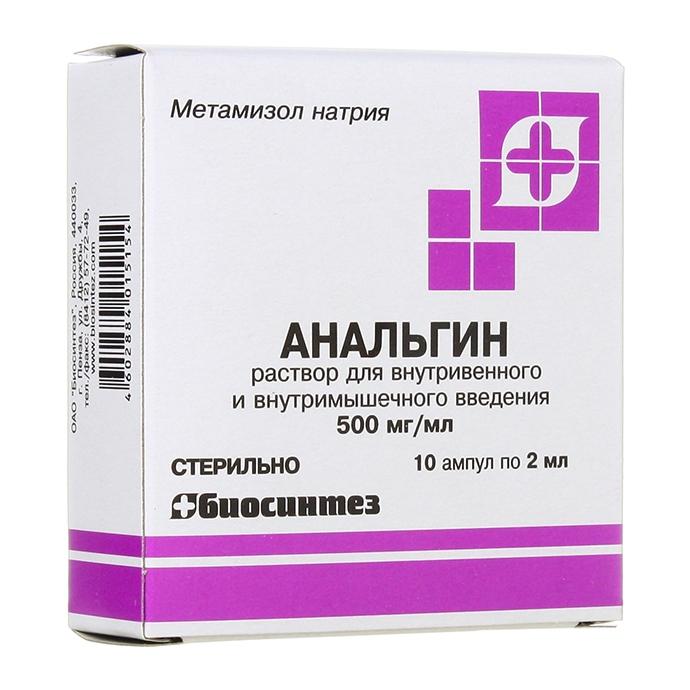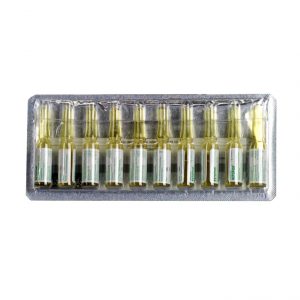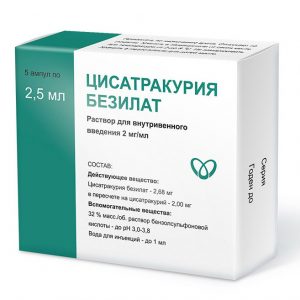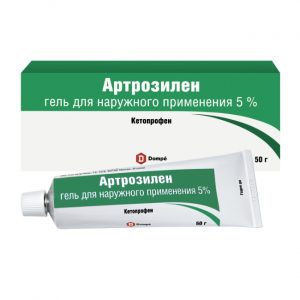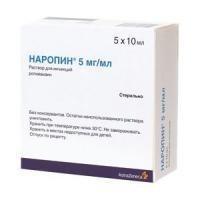Description
Pharmacological action
Analgesic-antipyretic. It is a derivative of pyrazolone. It has an analgesic, antipyretic and anti-inflammatory effect, the mechanism of which is associated with inhibition of prostaglandin synthesis.
Pharmacokinetics
After oral administration, metamizole sodium rapidly hydrolyzes in the gastric juice to form the active metabolite of 4-methyl-amino-antipyrine, which, after absorption, is metabolized to 4-formyl-amino-antipyrine and other metabolites. After iv administration, metamizole sodium quickly becomes unavailable for determination.
Metamizole sodium metabolites do not bind to plasma proteins. Most of the dose is excreted in the urine in the form of metabolites. Metabolites are excreted in breast milk.
Indications
Pain syndrome of various origins (renal and biliary colic, neuralgia, myalgia with injuries, burns, after surgery, headache, toothache, menalgia). Fever for infectious and inflammatory diseases.
Contraindications
Severe renal and / or liver dysfunction, glucose-6-phosphate dehydrogenase deficiency, blood diseases, hypersensitivity to pyrazolone derivatives.
Use during pregnancy and lactation
Use with caution during pregnancy, especially in the first trimester and in the last 6 weeks.
Special instructions
With prolonged use, the picture of peripheral blood must be monitored.
Metamizole sodium is used in combination with pitophenone and fenpiverinium bromide as an analgesic with an antispasmodic effect.
Use with caution in children in the first 3 months of life.
Composition
Injection 50%
1 ml
1 amp.
metamizole sodium
500 mg
1 g
Dosage and administration
Inside or rectally, adults are prescribed 250-500 mg 2-3 times / day. The maximum single dose is 1 g, daily – 3 g. Single doses for children aged 2-3 years are 50-100 mg 4-5 years old – 100-200 mg 6-7 years old – 200 mg 8-14 years old – 250- 300 mg frequency of administration – 2-3 times / day.
Intramuscularly or intravenously slowly in adults – 250-500 mg 2-3 times / day. The maximum single dose is 1 g, the daily dose is 2 g. In children, parenteral doses of 50-100 mg per 10 kg of body weight are used.
Side effects
Allergic reactions: skin rash, Quincke’s edema rarely – anaphylactic shock.
From the hemopoietic system: rarely, with prolonged use – leukopenia, agranulocytosis.
Local reactions: with i / m administration – infiltrates at the injection site.
Drug Interactions
With simultaneous use with analgesics, antipyretics, NSAIDs, mutual reinforcement of toxic effects is possible.
With simultaneous use with inducers of microsomal liver enzymes, a decrease in the effectiveness of metamizole sodium is possible.
With simultaneous use, the activity of indirect anticoagulants, oral hypoglycemic drugs, corticosteroids is enhanced, indomethacin due to their displacement from communication with blood proteins under the influence of metamizole sodium.
With simultaneous use with phenothiazine derivatives, pronounced hyperthermia with sedatives, anxiolytics is possible – the analgesic effect of sodium metamizole with tricyclic antidepressants, oral contraceptives, allopurinol is enhanced – the metabolism of sodium metamizole is disturbed and its toxicity with caffeine is increased, its concentration with caffeine is decreased – sodium caffeine is increased, its concentration is decreased with caffeine cyclosporine in blood plasma.
When metamizole sodium is used in combination with pitophenone hydrochloride (it has a direct myotropic effect on the smooth muscles of internal organs and causes it to relax) and fenpiverinium bromide (m-anticholinergic blocker), their pharmacological action is mutually reinforced, which is accompanied by a decrease in pain and relaxation of smooth muscles and a decrease in elevated body temperature.
Active ingredient
Metamizole sodium
Pharmacy vacation
Po
biosynthesis, biosynthesis
